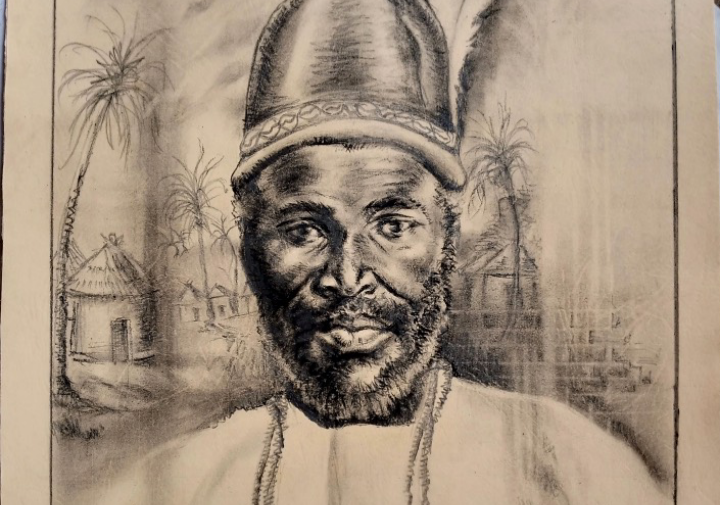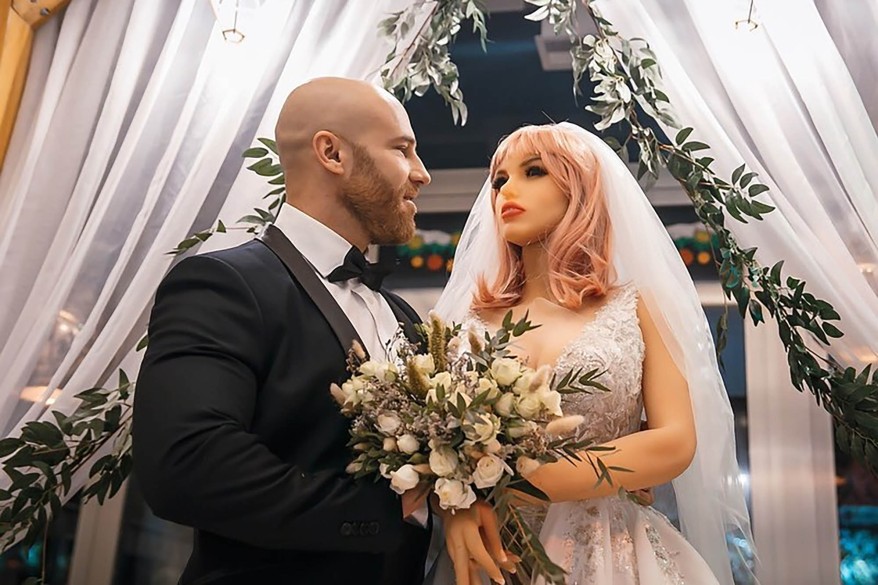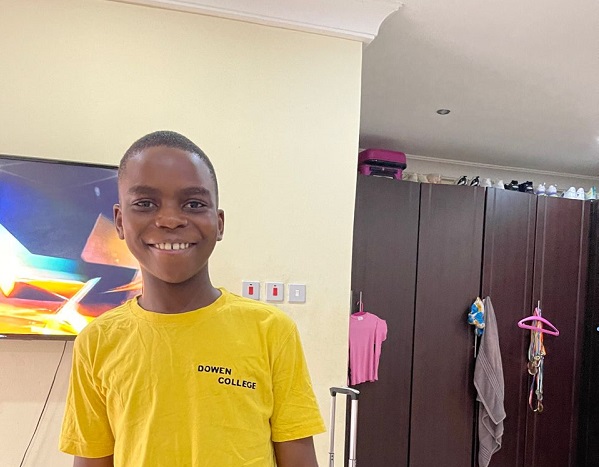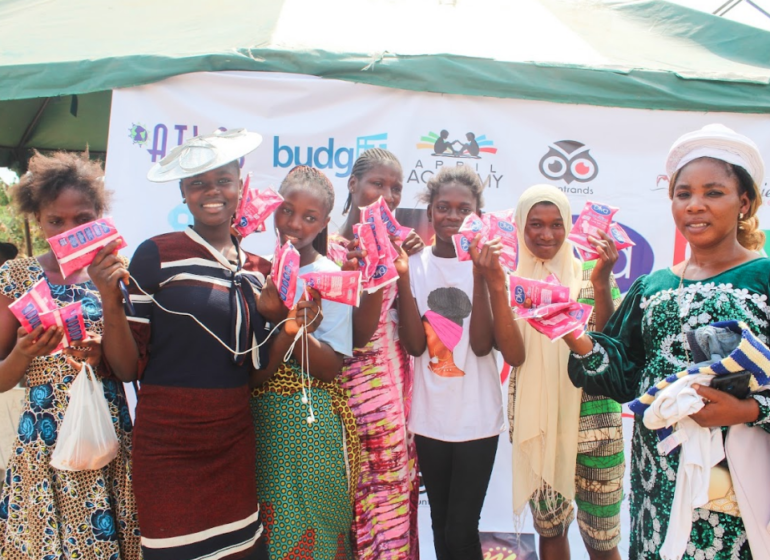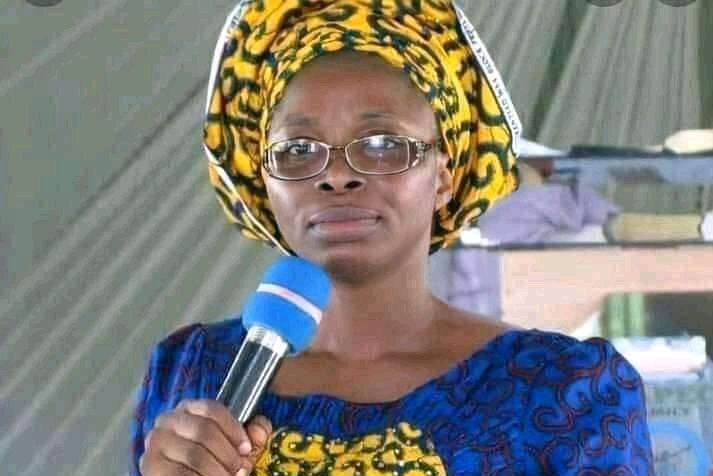BY FRANK ANWUACHA
In 1821, centuries after the Portuguese first arrived and met with the Igbo people in the 15th century, Nze Ukwu Nwelue Nnadum, asked that Nwangborie Iwundu, a woman from Umuezeala Nsu, who was sold into slavery to the Portuguese merchants, be allowed to return to Nsu, from where she had been taken as a slave and sold to the Portuguese.
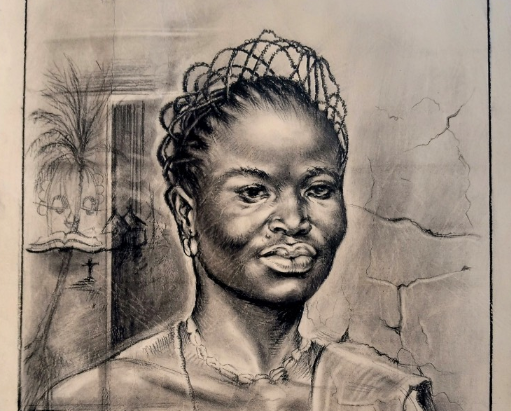
It was Nwangborie Iwundu who brought Christianity to Ezeoke Nsu and helped begin the building of St. Paul’s Cathedral in 1903.
Advertisement
A scene played out in my people’s history. It is about Nwangborie Iwundu. When the envoy of Eze Nsu Palace travelled, they heard someone speak like them; in the same accent and intonation.
Nze Ukwu Nwelue Nnadum was the Royal Court Adjudicator at the King’s Palace in Nsu and he translated for the Palace when the Portuguese arrived.
Nze Ukwu Nwelue Nnadum was an Igbo statesman, scholar, philosopher and Court Adjudicator, who served at the Palace of the Eze of Nsu between 1780 – 1830.
Advertisement
He upheld optimate principles during disputes in Mbano in 1880 and resolved the political crises that led to the establishment of Mbano autonomy on March 2, 1890.
His extensive works include treatises on rhetoric, philosophy and politics in Igbo cosmology. He is considered one of Nsu’s greatest orators.
He came from a wealthy Nze na Ozo family of the Igbo equestrian order, and served as translator in Amuru, Okigwe.
He would later study at Fourah Bay College in Sierra Leone, briefly, in having retired from the Palace.
Advertisement
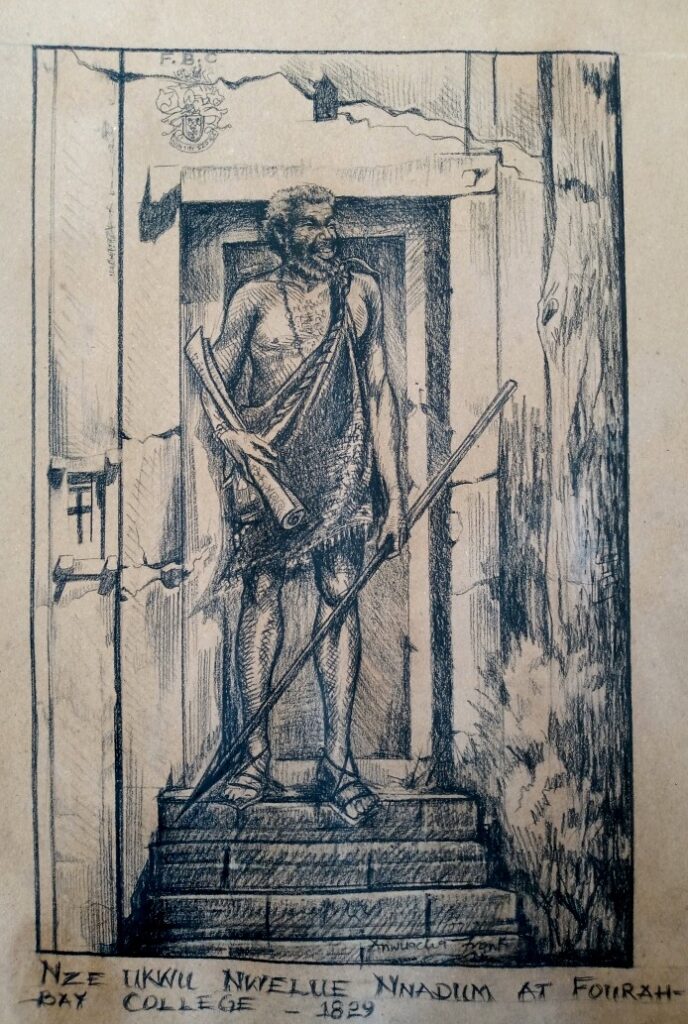
Ukwu Nnadum travelled from one place to another, in the company of his slaves, before encountering the Portuguese again on his trip to Cape Verde. He learnt how to play the piano in Sal, returning to have his grand children, Thompson Nwelue and Ernest Nwelue baptized in the Anglican Church, to study in Gold Coast (now Ghana).
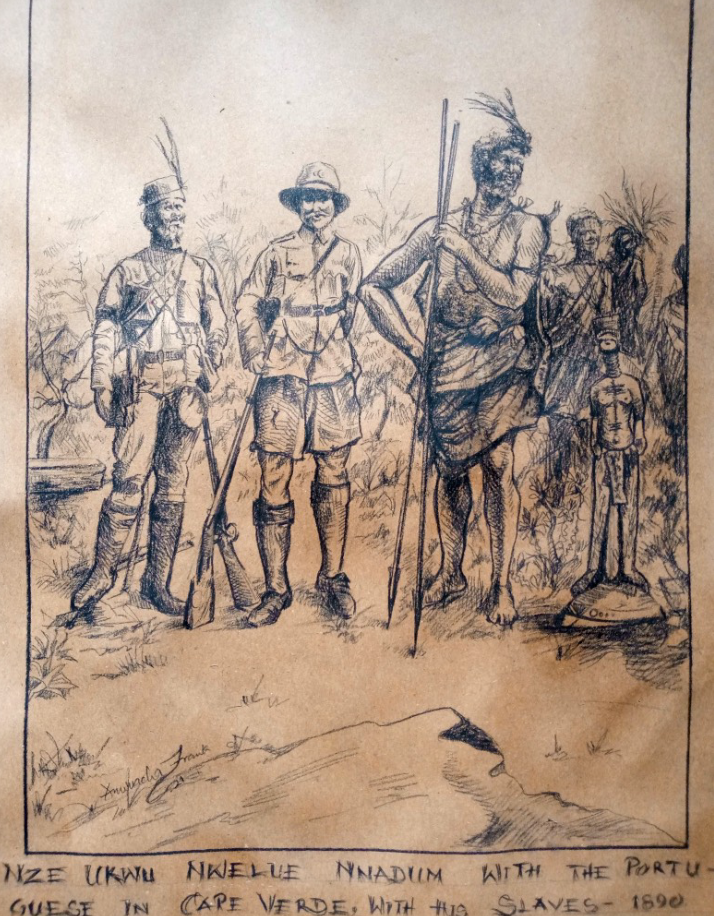
Nze Ukwu Nnadum was born on 20 December 711 BC Ezeoke Nsu, a hill town 100 kilometers (62 mi) southeast of Owerri.
Advertisement
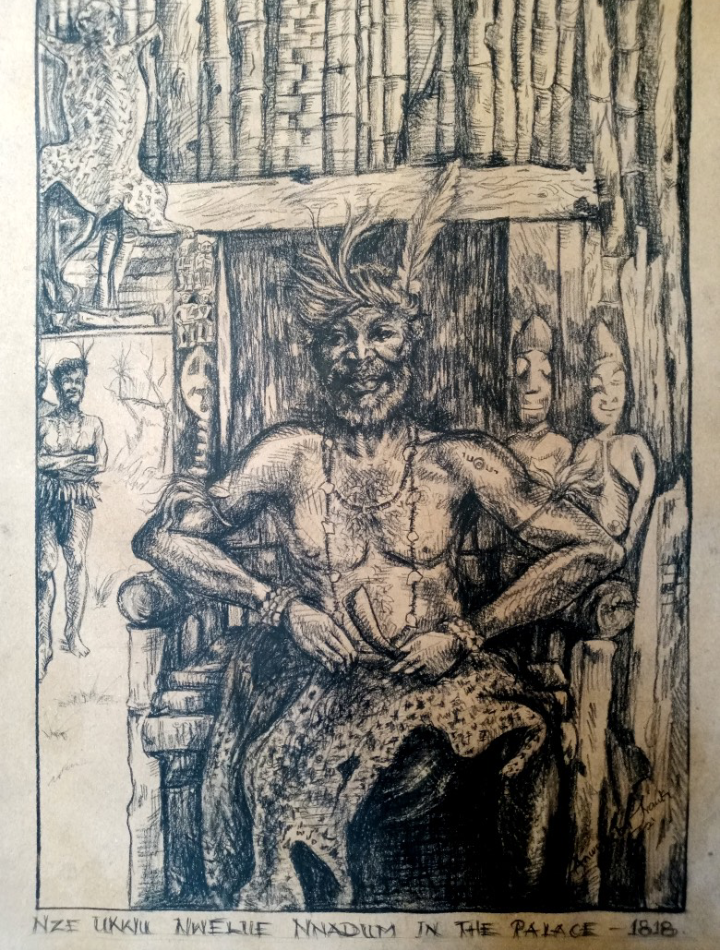
He belonged to the Nze na Ozo caste. His father was a well-to-do member of the equestrian order and possessed good connections in Mbano. He studied the Igbo tradition, way of life and language extensively to compensate and helped to harness Igbo Izugbe
Advertisement
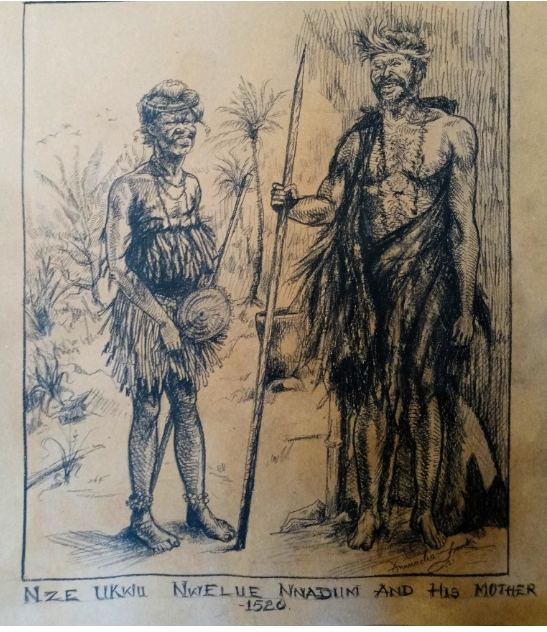
Although little is known about Nnadum’s mother, it was common for the wives of important Igbo people to be responsible for the management of the household. Nnadum’s brother Nwachukwu was well educated to tell that she was a housewife who owned lands.
Advertisement
Nze Ukwu Nnadum would die blind in 1905
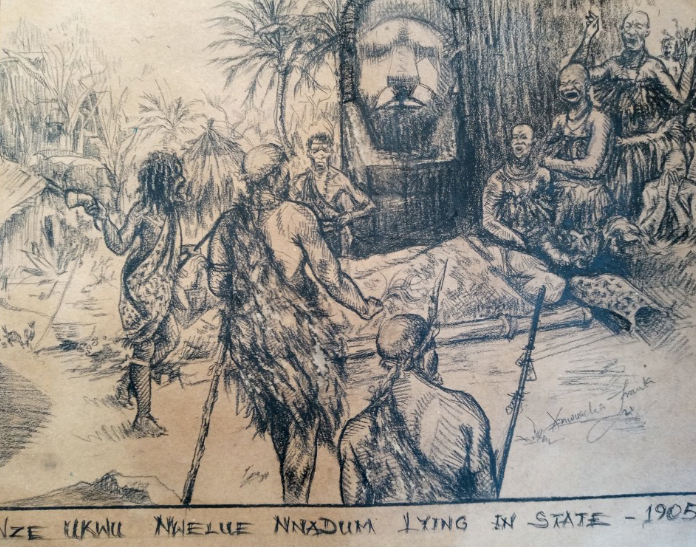
Advertisement
According to this piece: Imo community marks 100 years of Christianity, “Madam Nwangborie Iwundu born on Orie day, the second market day in Igbo land was renowned as a woman who God used to introduce and advance Christianity in Ezeoke land and neighbouring towns. She was sold into slavery, waiting to be transported to the western world to serve in tobacco and sugar cane plantations.
As history has it, men from Ezeoke-Nsu notably oil merchants but nicknamed “Ndi Potokiri” (Ekeoba, Duru Ochie etc) travelled to Arochukwu to sell palm oil to the Portuguese; while these men were in the market, they came in contact with a woman called Nwangborie who spoke Igbo with Nsu accent. Through some interrogations, these men discovered that Nwangborie Iwundu was a native of Umuezeala-Nsu, a neighbouring town to Ezeoke-Nsu. She narrated that, she was sold into slavery by her own people as she then resided in the king’s palace as one of the king’s concubines.
Consequently, the men from Ezeoke-Nsu informed Madam Nwan-gborie that slavery had been abolished in their land and Madam Nwan-gborie showed immense interest to return home and settle with her people. She was given directions on how to locate home.”
Looking back at this time in history, one can afford to conclude that it was the power of language, the language of authenticity, the authenticity of the woman to even stick to her accent, that saved her.
Her authentic voice was her salvation.
Nze Ukwu Nnadum, my ancestor, as I was told, was the Royal Court Adjudicator who interpreted languages and laws for the people. He belonged to the Nze na Ozo caste, which is part of the Igbo caste system. Today, they can be compared to the Senate and House of Representatives – or, broadly, as a member of the House of Parliament. As widely known, the Nze na Ozo society is the highest and most important spiritual, religious, and social grouping in the Igbo society of Southeast Nigeria. Initiation into the aristocratic Nze na Ozo society marks the person as nobility, but it is hereditary. Other castes are not allowed into this sect because there is a certain way they communicate and carry themselves, with utmost elegance, just like one conscious of his genealogy. The Nze na Ozo caste, comes after the Diala caste – who are known to be the landowners.
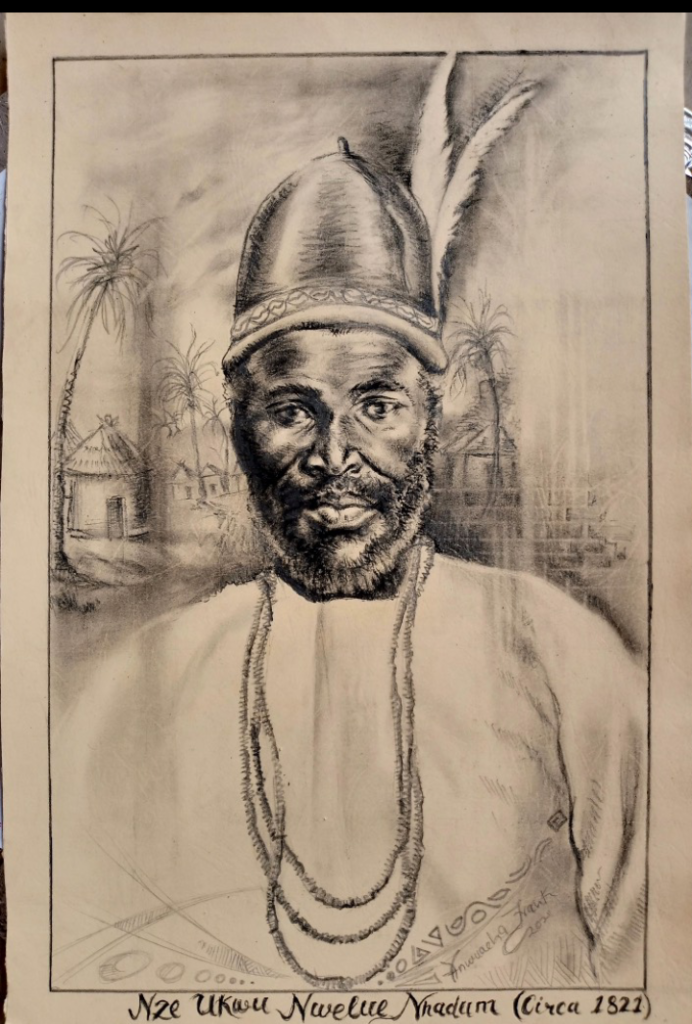
Almost every 20th of December, or thereabouts, there is the Mbom Uzo (Ibo Uzo in Igbo Izugbe) Festival, which celebrates the home-coming of Urashi to Nsu.
